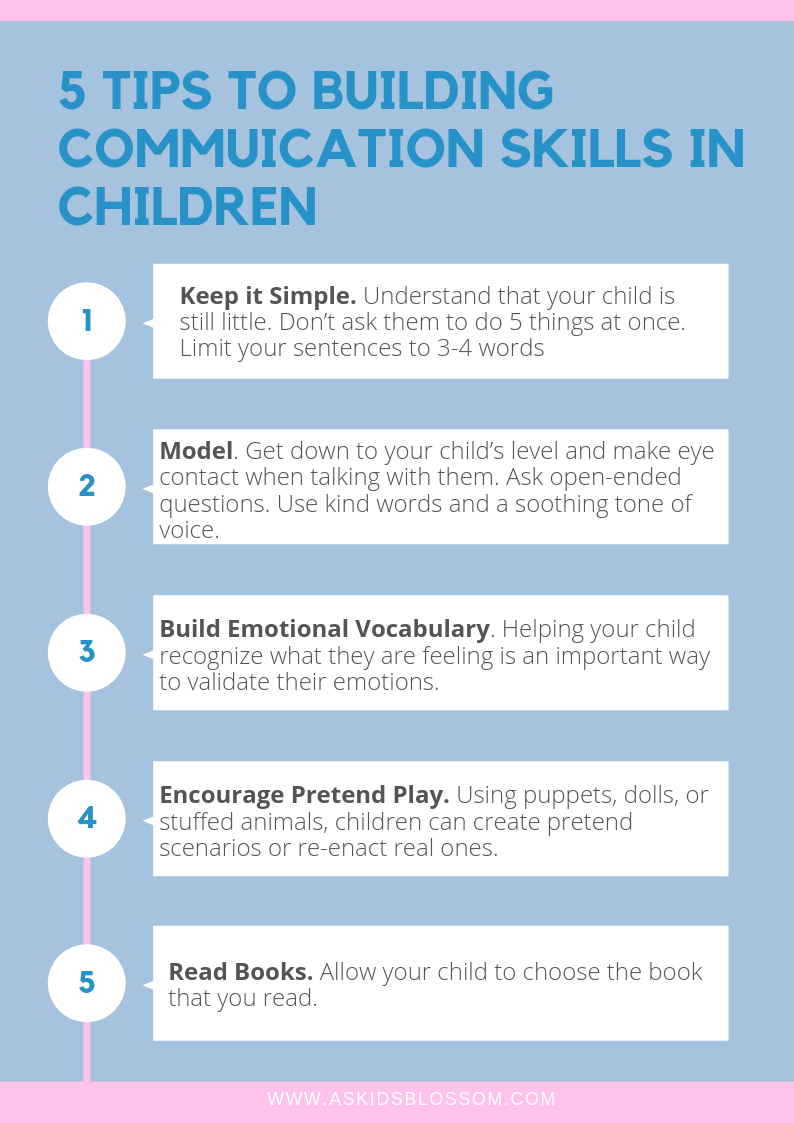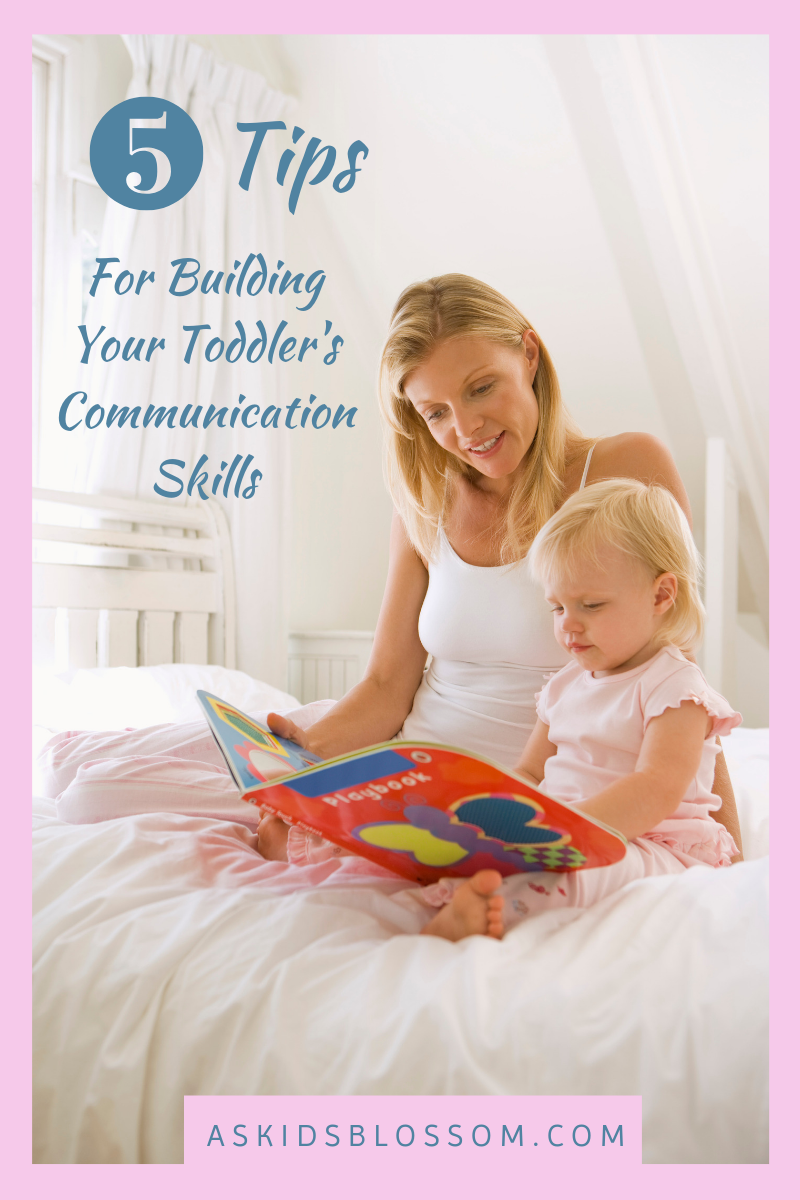If you’ve ever found yourself arguing with a toddler, or getting sucked into an illogical conversation with one, you know the struggle that can sometimes come with communicating with little ones!
There is a lot happening in terms of brain development and communication during the time between babyhood and pre-school: your child likely can understand a lot more than she can say, and even though she shows a lot of sophistication in some areas, she is still very young!
Today I’d like to give you a brief overview of what is going on in terms of development during this time, and then share with you my 5 favorite tips for communicating effectively with your toddler!
Why Building Communication Skills in Toddlers Is Important?
Between the ages of 2 and 3, your child is comprehending A LOT of words, even more than he is speaking.
If you haven’t seen the chart on language development in my post about preschool vocabulary, check it out here. It’s pretty incredible how fast the growth happens! Your little one is also responding to commands and answering simple questions.
And even though he KNOWS a lot, sometimes communicating can be a struggle.
Why?
Because young children know a lot more than they are able to communicate, so when they are unable to express their feelings and be understood, they often act out (crying, getting angry, tantrums, etc). This can be frustrating for everyone, including parents!
5 Tips To Building Communication Skills in Toddlers
To help with this frustration, here are my 5 tips to build your toddler’s communication skills:
Keep it Simple
Keep in mind that your child is still little- don’t ask them to do 5 things at once, or expect them to understand a long explanation. Be as simple and direct as possible when explaining things, and make requests only 1-3 steps.
Model
Show your child what it means to communicate well! Get down to your child’s level and make eye contact when you are talking with them. Ask open-ended questions and really listen to the response. Use kind words and a soothing tone of voice.
Children are learning from YOU how to communicate, so make sure you are modeling what you would like to see! For example, if you don’t want your children to yell, don’t yell at them. If you want your child to use kind words, use kind words when you are speaking to them (and others)!
Build an Emotional Vocabulary
Helping your child recognize what they are feeling is an important way to validate their emotions and build their emotional vocabulary.
When your child is crying about having to brush their teeth, instead of getting frustrated and dismissing their tears, take a minute to empathize with them. “I know that you don’t like brushing your teeth, it can be really hard to have to do things that you don’t like!”
Try not to just hold a space of quiet for a minute after saying something like this, instead of jumping to “but we have to keep our teeth clean or we’ll get cavities.” This “but” statement can feel like you are negating your child’s feelings. Just empathize and be quiet- this often does the trick!
Encourage Pretend Play
Playing pretend is not only fun for toddlers, but it can be a way for them to process tough emotions. Using puppets, dolls, or stuffed animals, children can create pretend scenarios or re-enact real ones. Play with your child and watch what types of things they are doing. You can often learn a lot by just observing and listening! I love these Melissa and Doug Puppets, available on Amazon, and their set of wooden dolls as well.
Read Books
Reading aloud is important in so many ways! Allow your child to choose the book that you read- this shows that you value her opinion and are interested in what she likes. Talk about the story as you read and make guesses about what will happen next. Look for books that model good communication, too.
I love the book Lacey Walker, Non-Stop Talker. It’s geared towards the 4-6 range, but I feel like it’s good for younger ones, too! I also love Crunch, The Shy Dinosaur and it’s perfect for little readers.

As always, I hope this article will help you build better communication skills in toddlers. If you notice your child struggling and these strategies aren’t helping, I would love to help you determine your child’s individual needs. Please reach out to set up a free consultation. We are here to support you as you help your child blossom!
If you have any ideas to share with us to build communication skills in toddlers, please join us in our FREE Facebook community to be a part of the challenge!
If you enjoyed reading 5 Tips To Building Communication Skills in Toddlers, you might also enjoy reading:
Building Your Preschooler’s Vocabulary
5 Activities to Develop Receptive Language Skills
